Brave New World: Aldous Huxley missing from 'greatest Britons' list
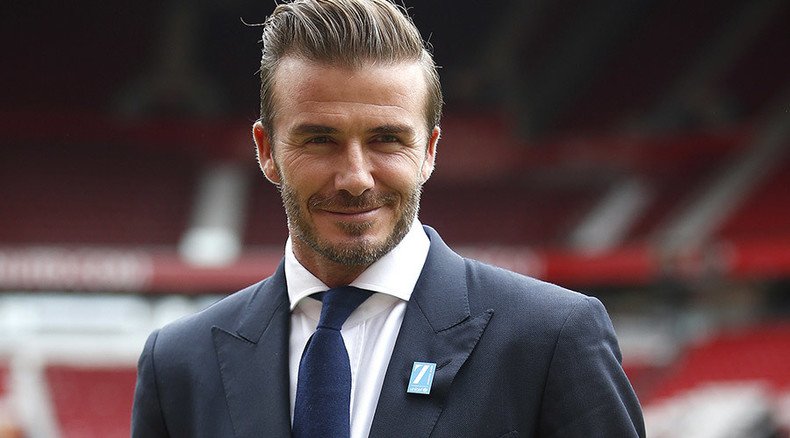
In Britain, we’re regularly treated to 'Top Greatest Britons' lists, with the latest one released in September. While some names undoubtedly deserve to be there, such as the ground-breaking physicist and mathematician Sir Isaac Newton, others are questionable.
Clearly, there are some serious flaws in the latest 'greatest Britons' list, compiled by The Mirror.
No serious judge, for instance, would claim that David Beckham was in the top five or even top ten best footballers that Britain has produced. ‘Becks’ is the only soccer player on the list at number 34. OK- he’s handsome, he’s a trendy dresser, and has 40 tattoos, but Stanley Matthews, Tom Finney, Kenny Dalglish, John Charles, George Best and England’s only World Cup winning Captain Bobby Moore all surely have stronger claims to be included.
And while we’re at it, let’s not forget about Duncan Edwards, tragically killed at the age of just 21 in the 1958 Munich Air Crash. At the time of his death, he had already “established himself as one of the finest wing-halves in football’s long history and looked set to become the greatest of them all,” as the World Soccer A-Z summed it up.
Dame Helen Mirren, who played the title role in The Queen, comes in at number 31. Fine actress, but is she really a ‘greater’ Briton than fellow thespian Vivien Leigh, who died aged only 53 in 1967, but who won two Academy Awards for Best Actress for her never-to-be-forgotten portrayals of Scarlett O’Hara in Gone with the Wind and Blanche DuBois in A Streetcar Named Desire? In terms of their ability to stir emotions, I’d go for Leigh over Dame Helen any time.
The high ranking of billionaire entrepreneur Sir Richard Branson, who appears at number 10 on the list, is also an eyebrow-raiser. Yes, he’s made a lot of money, and yes, he has a nice beard, but do his business activities - which include receiving large amounts of taxpayer subsidies to run Virgin Trains - really warrant him a place in the top ten greatest Britons of all time? I’d say that was vergin’ on the ridiculous.
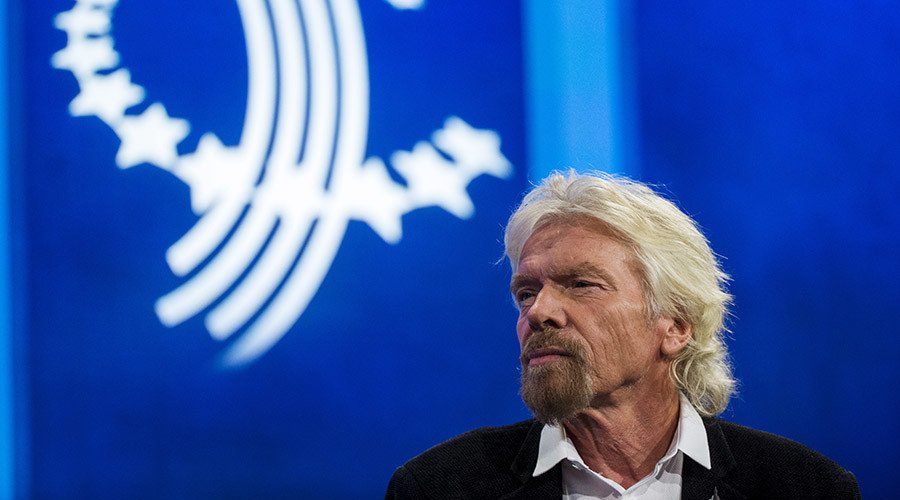
Seeing that he led Britain to victory against the Nazis in World War II, it’s understandable that Sir Winston Churchill gets a high placing (he’s number 2), but does Margaret Thatcher deserve to be ranked the 27th Greatest Briton? While she made history as the country’s first woman Prime Minister, I’d argue that Clement Attlee, whose government introduced the NHS, and Harold Wilson, who also extended public ownership and introduced the Open University, did more for the British people than the ‘Iron Lady’ and as such are more deserving of a top 30 position. In fact, neither made the top 50.
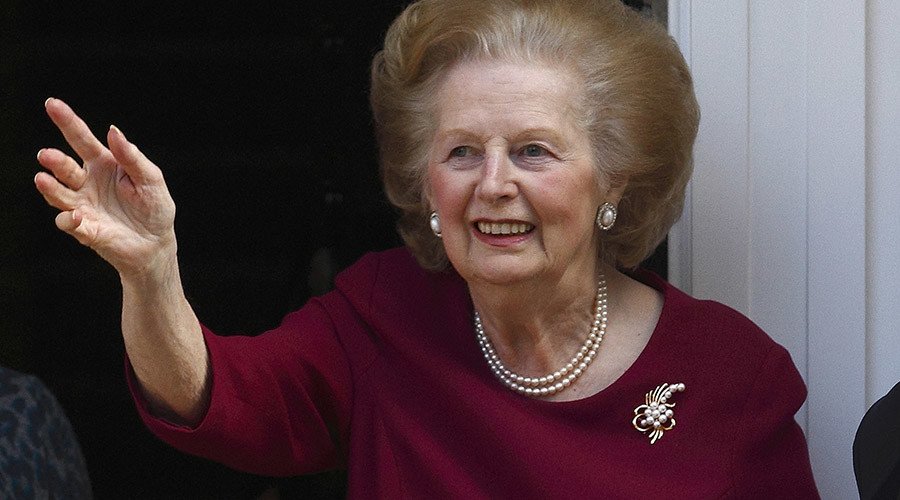
And what about the placing of Harry Potter author J.K. Rowling at number 15? She’s the highest rated writer after Will Shakespeare (who comes in at 14) and even comes above the author of Oliver Twist, David Copperfield and A Christmas Carol? What the Dickens is that all about!
No matter how many of these ’Greatest Britons’ lists we get one name is always absent - a name which really should be there. The novelist Aldous Huxley, author of Brave New World, and one of the 20th century’s most brilliant intellectuals.
What about Huxley?
Brave New World has proved to be more accurate than George Orwell's 1984 - another classic dystopian novel, as Huxley, writing in 1931, correctly predicted that the states of the future would not need to rely on brute force and the 'boot-on-the-face', but would be able to use conditioning techniques to control the population.
"My own belief is that the ruling oligarchy will find less arduous and wasteful ways of governing and satisfying its lust for power… the lust for power can be just as completely satisfied by suggesting people into loving their servitude as by flogging and kicking them into obedience," Huxley wrote in a letter to Orwell.
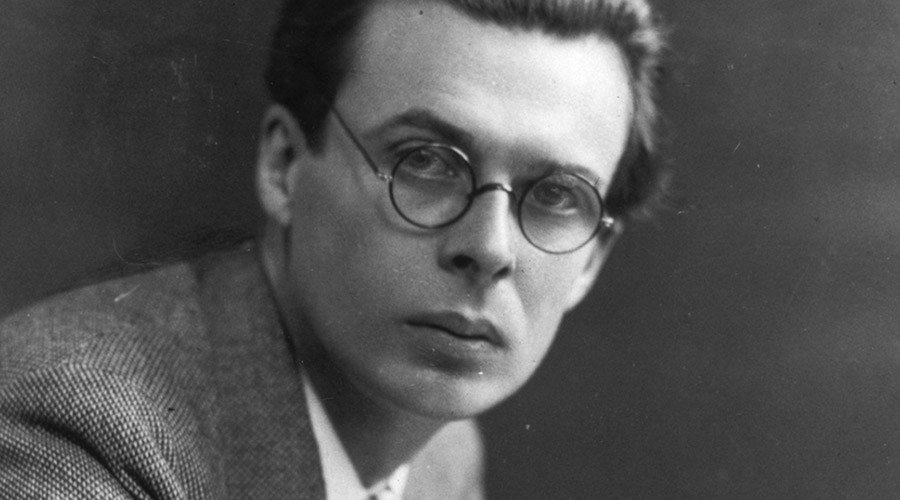
In the Brave New World of 2540 AD, the people, who are all genetically modified ‘test tube’ babies, with their caste predetermined, are sedated with the drug 'soma' (‘Christianity without tears’ and distracted with 'feely' films, and other 'entertainments'. There's no religion, no authentic emotions (‘When the individual feels, the society reels’), no family, euthanasia is widespread and there are no old books. Sexual promiscuity is encouraged- monogamy and romance are things of the past. ‘Everyone belongs to everyone else.’
The education system is geared solely for the benefit of the economy. Only activities, which encourage consumption, are encouraged. There is no time to read, or indeed to think. You don’t repair things that are broken, you buy replacements. ‘Ending is better than mending! The less stitches, the more riches’
Life is safe, but incredibly sterile. Critical thinking is strongly discouraged- everyone is expected to conform.
The fact is that the Britain of 2015- and indeed this applies to other 'advanced' neoliberal capitalist countries in the west as well- is already too close to Huxley’s 'Brave New World' for comfort. Popular culture, particularly television, has been dumbed-down. Sizeable sections of the population are on anti-depressants or other pills.
Even children are being fed pills- with the use of Ritalin (Methylphenidate) soaring.
Big corporations, organised on a global scale, play an increasingly dominant role in our lives. We are bombarded with advertising to buy things we don’t really need and to get rid of old things, rather than mending them. We are slowly being conditioned to accept euthanasia.
Family breakdown is accelerating - with the ‘ruling oligarchy’ playing its part. Only this week, we heard how, as part of the government’s new ‘anti-extremist’ agenda, courts will be able to remove children from their parents if ‘radicalization’ is suspected.
How Mustapha Mond, the Resident World Controller for Western Europe, would approve of that!
#BraveNewLegalSystemhttps://t.co/OSMBqLx86M
— NigelBriggs (@lawlecturer) October 12, 2015Then there’s the non-stop surveillance. We’re watched almost everywhere we go by CCTV cameras; in 2013 it was reported that there was one surveillance camera for every 11 people in Britain.
Privacy is increasingly difficult to maintain, as in Huxley‘s novel.
It’s just about the perfect time for a new theatre production- the first such production of Brave New World - to be touring Britain.
It’s devastatingly brilliant and a reminder of Huxley‘s extraordinary clairvoyance. Which begs the question- why isn’t the author better appreciated in his native country?
Despite the new theatre production, Huxley still gets nowhere near the credit he deserves. It’s not just Brave New World that should get the Sage of Surrey on any list of ‘Greatest Britons’, but his other work too.
Huxley wrote a series of thought-provoking novels of ideas, including Eyeless in Gaza and After Many a Summer, as well as the hugely underrated Island, in which the author gave us his own vision of Utopia, threatened as it is by man’s greed.
These are all great books, but how many people read them in Britain today? How often do we hear Huxley’s name mentioned on television or on the radio? Eyeless in Gaza was adapted for television by the BBC- but that was back in 1971. After Many a Summer was on the BBC too- but in 1967. Brave New World used to be one of the set texts for schools' GSCE exams, but is no longer included.
Interestingly, Huxley is not the only British prophet who’s suffered from the same neglect. HG Wells, who lived from 1866-1946, successfully anticipated a man walking on the moon, atomic bombs, the use of aeroplanes and tanks in warfare, answering machines, wireless communications, lasers and genetic engineering.
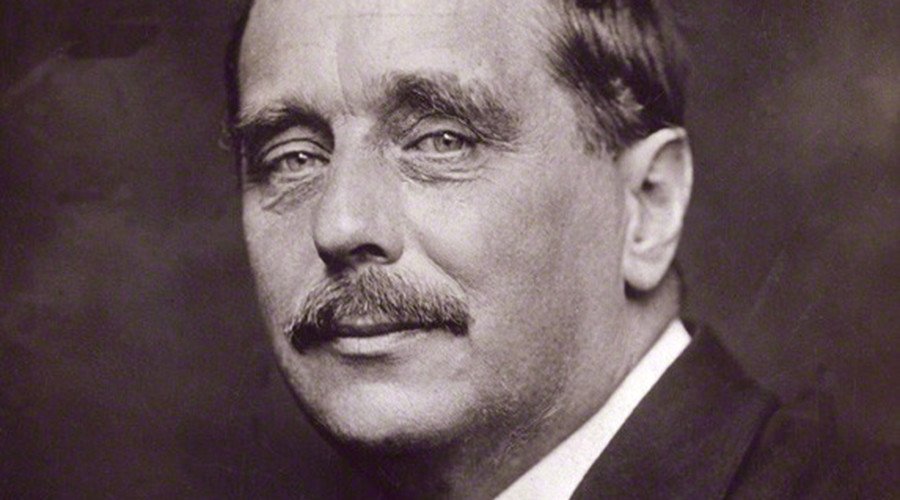
Like Huxley, Wells was a deep thinker on social issues, though he did come to different conclusions about how best to achieve the ideal society.
But for all Wells’ brilliance, he’s not in the list of '50 Greatest Britons' either. Nor for that matter is George Orwell, author of 1984 and Animal Farm. While we don’t give truly great Britons their dues, we have no problem in hailing more mediocre talents.
In a jingoistic speech made at this year’s Conservative Party conference extolling the superiority of British culture over that of other European countries, Culture Secretary John Whittingdale quoted an article by television historian Dominic Sandbrook from the Sunday Times.
“There are no French Rolling Stones, no German Beatles; there is no Italian Bond, no Spanish Rowling, no Dutch David Bowie.”
‘No Spanish Rowling‘? Isn't that a sign of how dumbed-down we've become? That a British Culture Secretary thinks that the British writer we should be boasting about is the author of the Harry Potter series?
No Spanish JK Rowling? Instead, they have Miguel de Cervantes, writer of maybe the greatest novel of all time.
https://t.co/8U9nGyk2ZJ
— Andy Gilder (@AndyGilder) October 5, 2015As in Huxley’s great novel, it seems that in the Brave New World of 2015, profits come before prophets.
Chapter Three: "Work, play - at sixty our powers and tastes are what they were at seventeen. Old men in the bad old days used to renounce, retire, take to religion, spend their time reading, thinking - THINKING!"
Aldous Huxley is a writer who really makes us think. And that could be the reason he is shunned today.
The statements, views and opinions expressed in this column are solely those of the author and do not necessarily represent those of RT.













